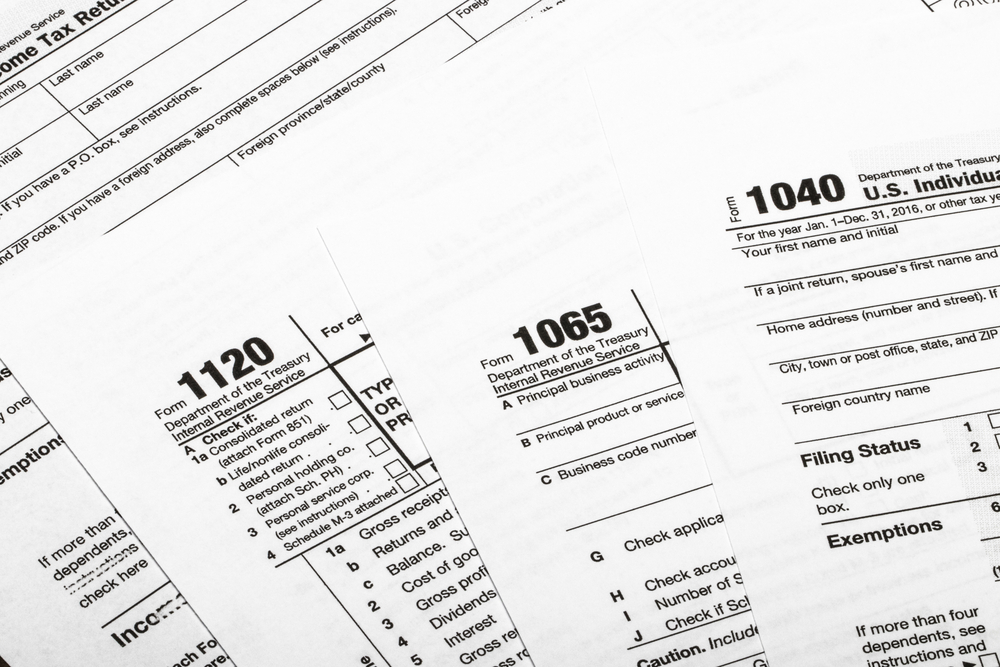With tax season looming on the horizon, it’s important to prepare your business finances to make filing as streamlined as possible. To set yourself up for success, you’ll need to know exactly what revenue you should be taxed on and which revenue shouldn’t be. This is where tax write-offs come into play.
What are tax write-offs?
A tax write-off, or tax deduction, is an expense that can be claimed for your business in order to lower your taxable income. Write-offs are a form of tax avoidance (as opposed to tax evasion!), meaning they are legitimate business expenses that decrease the taxable .
Typically, tax write-offs include all costs relevant to running a business, such as office supplies, accounting software, and travel expenses. Other deductions may include mileage when using your car for business purposes, and home office expenses.
When thinking about tax write-offs, it’s important to think from the perspective of why they would have been created in the first place. The idea is that you shouldn’t be taxed on your costs of doing business, only revenue your business generates that isn’t getting re-invested into the company.
Benefits of tax write-offs
Tax write-offs reduce your taxable income, meaning more money in your pocket and a smaller check written to the IRS. Because the taxes you owe are essentially a percentage of your business income, the lower that number is, the less you will owe.
Tax write-offs aren’t just for business expenses either. Write-offs can also include claimable expenses on your individual taxes to reduce your taxable income. If you’re unsure what expenses you can write off, you may consider consulting a CPA to help you categorize your expenses and identify qualifying deductions.
How do tax write-offs work?
There are two categories of tax write-offs: deductible business expenses and personal itemized deductions. While one is for your business and the other for your personal income tax, it’s important to understand the difference between them to ensure you use them to your advantage.
Personal itemized deductions
When you file your annual tax return, the IRS takes your total reported income for the year and subtracts all relevant deductions and credits you reported from that figure. The remaining balance is your taxable income, which is used to place you in a tax bracket that determines your tax rate. These tax brackets are adjusted for inflation each year by the IRS.
For tax year 2023, the IRS includes a standard deduction of $13,850 for individuals and married couples filing separately or $27,700 for married couples filing jointly. For heads of households, the standard deduction is $20,800.
So, if you are filing as an individual and report an income of $70,000 for 2023, your adjusted gross income (the amount you will owe taxes on) will be $56,150 after subtracting the standard deduction. If you believe you will have more write-offs than the standard deduction, you can opt for personal itemized deductions instead. These deductions can include mortgage interest, sales taxes, some medical expenses, and charitable donations.
Deductible business expenses
As a small business owner, you can also deduct business expenses from your gross income to further lower your tax bill. Whether you’re a sole proprietor or an LLC, you can deduct the day-to-day costs of your business from your taxable income.
If your business earned a total of $120,000 in 2023 but spent $10,000 on essential business expenses that qualify as deductions, then you will pay taxes on $110,000. That’s $10,000 you earned in your business that you won’t need to pay the IRS for, as that revenue was rolled back into your business.
Who can write off business expenses?
While anyone can claim personal itemized deductions, only sole proprietors, LLCs, and Corporations can claim deductible business expenses as tax write-offs. W-2 employees cannot write off work expenses, meaning it is up to the employer to reimburse them for any business-related expenses they may encounter while doing their jobs.
Write-offs for sole proprietors vs. LLCs
A common self-employment myth is that you are eligible for more write-offs as an LLC than you can leverage as a sole proprietor. But if you set up your business as a sole proprietorship, you can lower your taxable income just as easily as LLCs and corporations with some deductions available uniquely to your business structure.
One significant tax deduction available to self-employed individuals is the qualified business income deduction (QBI), which allows you to deduct up to 20% of qualifying business income on your taxes. This deduction is for anyone who has business income that is reported on a personal tax return, which includes both sole proprietorships and LLCs that the IRS considers “pass-through” entities. Although the QBI is available to other business types as well, it is most commonly leveraged by sole proprietors who are more likely to have this type of income reporting and have income at or below the income threshold of $170,050.
Although there are very few differences between sole proprietors and LLCs in terms of tax write-offs, an LLC is beneficial for providing you with limited liability protection as well as many unique tax benefits that can save you money in the long run.
Write-offs for single-member vs. multi-member LLCs
While both are LLCs, the IRS treats single-member LLCs very differently from multi-member LLCs. As a single-member LLC, you’ll file your taxes much the same as a sole proprietorship, reporting profits and losses on a Schedule C submitted to the IRS with Form 1040. Your write-offs will be very similar to a sole proprietor, and you don’t need to file a separate business tax return from your personal tax return.
As a multi-member LLC, the IRS treats you as a partnership. Your business profits still will not be taxed as a separate entity from your personal tax return, but you must pay taxes specifically on your share of the profits and losses. You’ll need to outline each person’s share in an LLC operating agreement, and it’s worth the cost of hiring an accountant or other tax professional to help you navigate shares and deductions.
Tax write-off examples
Some examples of common tax write-offs for businesses include:
- Advertising and Marketing
- Automobiles
- Bad debts
- Bank fees
- Books and professional journals
- Business equipment and office supplies
- Business insurance
- Business loan interest
- Business-related meals
- Employee expenses (wages, hiring costs, bonuses, etc.)
- Rent
- Software subscriptions
- Start-up costs
- Taxes and licenses
Not all small business expenses are tax deductible, but many of them will fall into one of the above categories. Here are a few more detailed examples of tax write-offs for a small business:
Example #1: LLC Plumbing Business
You own a plumbing business for which your four employees frequently drive to-and-from various work sites as well as the shop in your backyard. You also operate from an office space within your home, managing most of the business using a work-only cell phone to handle maintenance calls, scheduling, and ordering supplies. With this setup, you have many write-offs to account for:
- Car or truck mileage for your employees’ trips between the shop and on-site jobs
- Wages or contractor fees for your workers
- Any plumbing supplies purchased for jobs
- A portion of your rent or property taxes to account for the home office and backyard shop
- A general liability insurance policy, due to the work occurring within customer homes
- Accountant fees to take care of all these write-offs for you
- And even the work-only cell phone you use every day!
Example #2: Self-Employed Copywriter
You are a freelance copywriter operating as a sole proprietor who works fully remotely from home for several clients. You have a small online presence through your professional website and social media, but do not spend any money on advertising, finding clients through referrals and word-of-mouth. You hired a graphic designer for a new logo this year and have a few software subscriptions essential to your work. Occasionally, you may meet with a potential client over lunch in-person, though it is mostly done via video calls. Here are some of the write-offs you won’t want to miss:
- Advertising/marketing costs for your website maintenance and domain
- Essential software subscriptions for your business
- A portion of your rent for the square footage of your home office
- Contractor fees for hiring the graphic designer
- A new computer or monitor for work specifically
- Any meals for business purposes
Example #3: A Local Bakery
You opened a small bakery downtown this year, which involved several start-up costs. You took out a small business loan to help you get started, and also needed to register for a business license and acquire several essential permits (food service license, resale permit, building health permit, etc). Before opening, you had to renovate the building you are leasing and outfit it with new furniture and baking equipment. On top of all this, you’ve placed some local ads in the paper and on a billboard to spread the word about your new storefront. For your first year of business, you will have several write-offs to keep track of:
- Start-up costs
- Small business loan interest
- All permits and licenses
- Renovations, furnishings, and equipment for your storefront
- Building lease
- Advertising costs for the newspaper ad and billboard
Tax write-off FAQs
How Lili helps with tax write-offs
Trying to figure out what is tax deductible and which write-off category it falls into can feel overwhelming, but it doesn’t have to be! Lili’s Tax Preparation software helps you categorize your transactions instantly throughout the year. And, When it’s time to file your taxes, you’ll already have all of your write-offs organized and ready to submit to ensure you receive all of the tax savings your business is entitled to!




